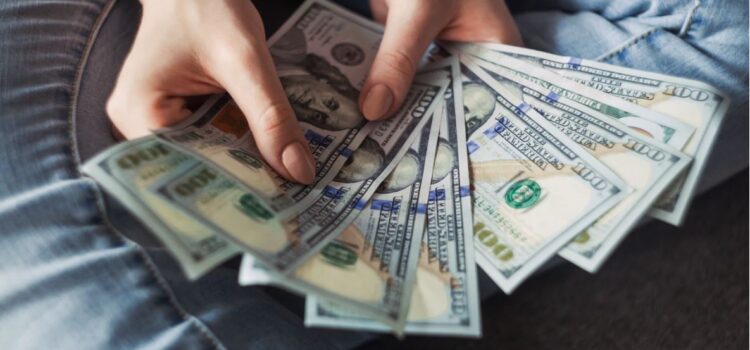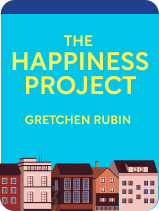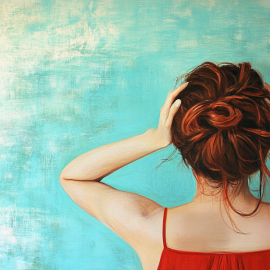

This article is an excerpt from the Shortform book guide to "The Happiness Project" by Gretchen Rubin. Shortform has the world's best summaries and analyses of books you should be reading.
Like this article? Sign up for a free trial here .
Is there a correlation between money and happiness? Do you think money can buy happiness?
Money and happiness have a heavily debated relationship—it’s a common saying that money can’t buy happiness, but it’s fairly clear that money can certainly contribute to it. You don’t even have to earn a crazy amount of money to be happy. The trick is to use your money in wise, meaningful ways that contribute to the factors of happiness.
In this article, we’ll talk about the relationship between money and happiness, and some ways to derive more happiness from spending money.
Can Money Buy Happiness?
Though money can arguably buy happiness, studies regularly show that people in the United States—a relatively wealthy country—don’t consider themselves much happier than impoverished people in India. This is because we get used to what we have. We don’t feel happy about the luxuries we have—such as hot water, consistently working electricity, just a roof over our heads—because they’re just a normal part of our lives. If you gave a homeless person these luxuries, they would be very happy—until they got used to them, that is.
That said, money can and do contribute to happiness in a number of ways:
- You can buy necessities, express generosity toward others, indulge in the things you want, and further your knowledge and mastery of a subject—which helps you get ahead in life and work.
- You can focus on larger goals, ambitions, and happiness when you’re not focused on just scraping by and covering basic necessities.
- Beyond allowing us to acquire wants and needs, money is how we naturally size ourselves up against our peers. For example, if you lived in a nice house in a rough neighborhood, you’d likely be happier than if you were living in the least nice house in a very upscale neighborhood.
The key to a happy relationship with money is using your money in wise, meaningful ways that contribute to the factors of happiness—feeling good, feeling right, and creating an atmosphere of growth. There are three ways to use your money in meaningful ways: indulging in small happiness splurges, buying what you need and using the “good” stuff, and refraining from “unhappy” spending.
Indulge in Small Happiness Splurges
Splurging can make you feel guilty if it’s done just for the sake of spending money and acquiring something. But, small splurges have the power to make you happier if you splurge in ways that contribute to your happiness goals. “Meaningful splurging” has two key parts: it makes you feel good and creates a feeling of growth, and it’s rare.
1) Determine What Kind of Spending Feels Good to You and Creates Growth
No matter your income level, you can spend money in small, meaningful ways. Choose your splurges carefully, and in line with what feels meaningful and good to you—take some time to figure out what you really want, and what type of spending would make you feel a sense of growth. For example, some people might splurge on nice clothing that makes them look and feel their best. On the other hand, you might be more satisfied by splurging on tools to expand your gardening hobby.
2) Practice Rarity
One of the most important factors to indulging in splurges is rarity. If you indulge too frequently in something, it no longer feels like a special treat—you get used to it, and the happiness it brings you subsequently diminishes.
- For example, if you went out for ice cream every day after work, it would soon become a regular part of your routine, like your commute or your Saturday morning workout class. On the other hand, if you only splurged on ice cream after making a big sale at work, then it would retain its “specialness” and potential to make you happy.
Furthermore, the happiness of indulging in something doesn’t only come from purchasing it—it comes from the journey toward buying it. Saving, researching, planning, and imagining are all part of the happiness journey behind a purchase. If you love something, don’t make the mistake of thinking that more of that thing will make you happier.
Buy What You Need and Use What You Have
Creating happier spending habits isn’t just about splurging—happiness also comes from two more mundane types of spending: spending money on what you need and using up (a type of “spending”) what you already have.
Buying What You Need
Most people fall under one of two types of buyers, each with its own particular flavor of unhappiness—”underbuyers” and “overbuyers.”
- Underbuyers usually wait until the last possible moment to buy something they need—such as toothpaste, shampoo, or pens—and even then, they buy the minimum amount of it. They often feel stressed because they don’t have what they need when they need it and are constantly having to make extra trips to the store.
- Overbuyers often buy a huge supply of anything they could possibly need, even things that aren’t frequently used, such as allergy medicine or greeting cards. They often feel stressed because they have clutter in their homes, end up wasting products that they couldn’t consume before their expiration date, and sometimes feel obligated to shop when it’s not necessary just to use coupons.
No matter which type of buyer you are, increase your happiness simply by buying what you need. For underbuyers, this means stocking up on items you always feel that you’re running out of. For overbuyers, this means cutting back on buying things that aren’t really necessary and are likely to go to waste.
Don’t Forget to Use the “Good Stuff”
One simple way to contribute to your happiness is to stop hoarding material things for “someday.” First, because “someday” might never come—you might lose or break the item, or you could pass away before enjoying it. Second, not using an item is just as wasteful as directly throwing it out. Either way, it’s not serving its purpose.
There are two types of “someday” that you usually hold onto things for.
- You’re saving it for someday special. When you catch yourself in this mindset, ask yourself: What special occasion could I possibly be saving this for? If you can’t think of a specific occasion, seek out special ways to use it now. For example, use your nice stationery to write meaningful notes to friends. Or, use your nice dishes for a dinner party—you likely won’t have the Queen to dinner anytime soon.
- You’re saving broken or dysfunctional items to be fixed someday. In these cases, keep in mind that if you haven’t it gotten fixed already, you probably won’t. It’s much more freeing to get rid of the item and replace it.
The idea of using the “good stuff” stretches far beyond material things—it should also apply to hoarding ideas, time, and generosity. To do this, you need to commit to doing what feels good or right, without focusing on your potential losses or profits.
- If you’re saving up ideas, use them now. You have to trust that good ideas will come to you again in the future. For example, if you have a great idea for an article, don’t save it for a “slow week.”
- Let go of your expectations of praise or reciprocated generosity in your relationships. Be generous and loving because you can and want to, not because you expect a return on the investment. This usually leads to more happiness and love, whereas keeping score and focusing on your “profit” usually leads to frustration and resentment.
How Donating to Charity Can Make You Happier
Donating to charity is a way to “use the good stuff” (in this case, money), let go of a fixation on profit, and boost your happiness. Studies show that those who contribute to charity are happier, and on average actually become wealthier than people who don’t. There are a couple of suggestions as to why this happens.
Donating stimulates your brain, leading to the good ideas that allow advancement in your career.
People who are seen as charitable are often considered to have attributes that underpin good leadership.
Stop Spending on What Makes You Unhappy
It’s important to think about what kind of spending makes you feel bad and cut it out of your life. For example, feel-bad spending might include ordering takeout every night, buying cigarettes, spending money on clothing you won’t wear, and so on. Keep in mind that not all spending is monetary—think about unfulfilling ways you might be spending your time, such as reading Facebook comments, sleeping in late, or putting effort into a one-sided friendship.

———End of Preview———
Like what you just read? Read the rest of the world's best book summary and analysis of Gretchen Rubin's "The Happiness Project" at Shortform .
Here's what you'll find in our full The Happiness Project summary :
- How to increase the overall happiness in your daily life
- Why changing everything won't bring you happiness
- How to create your own year-long happiness project






